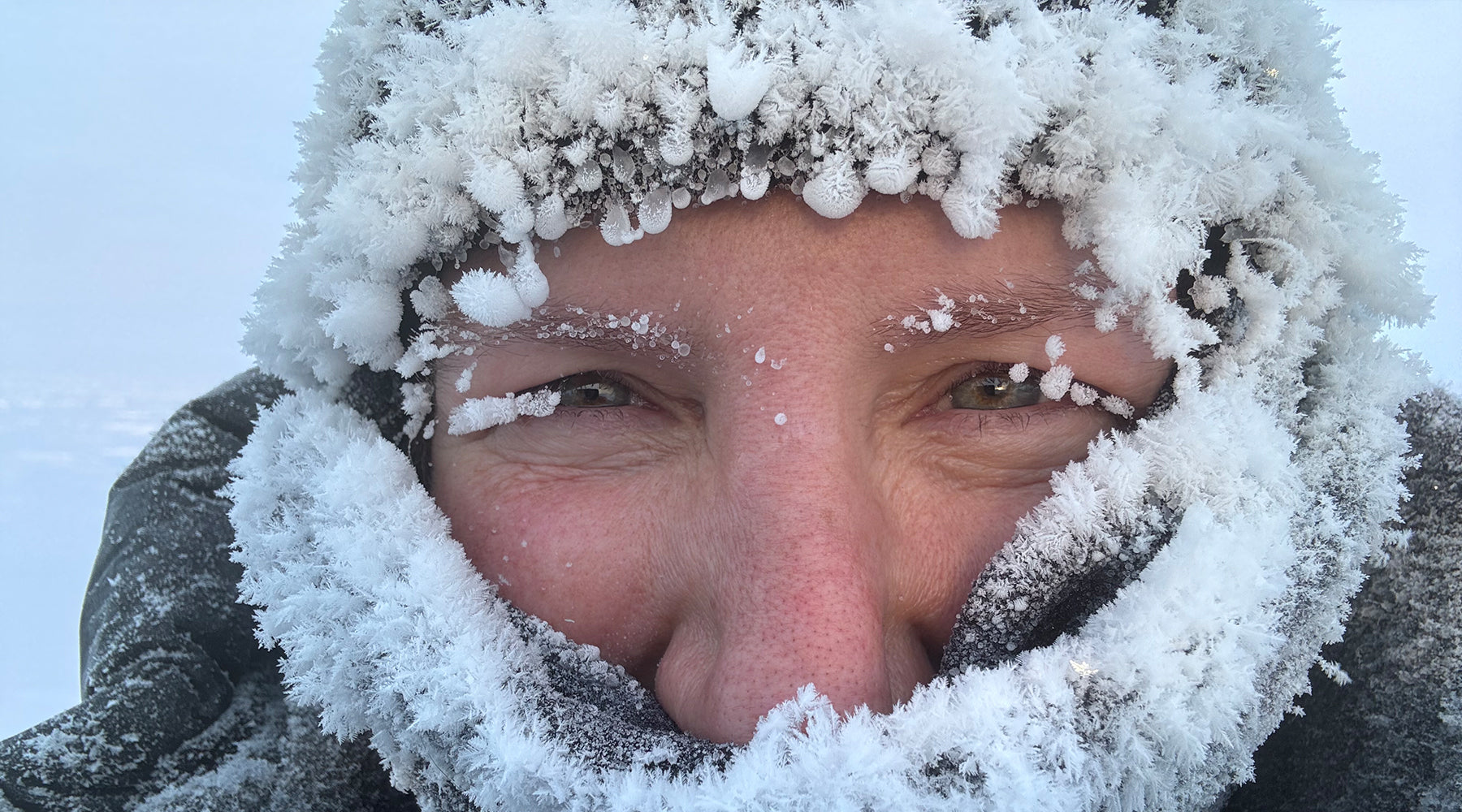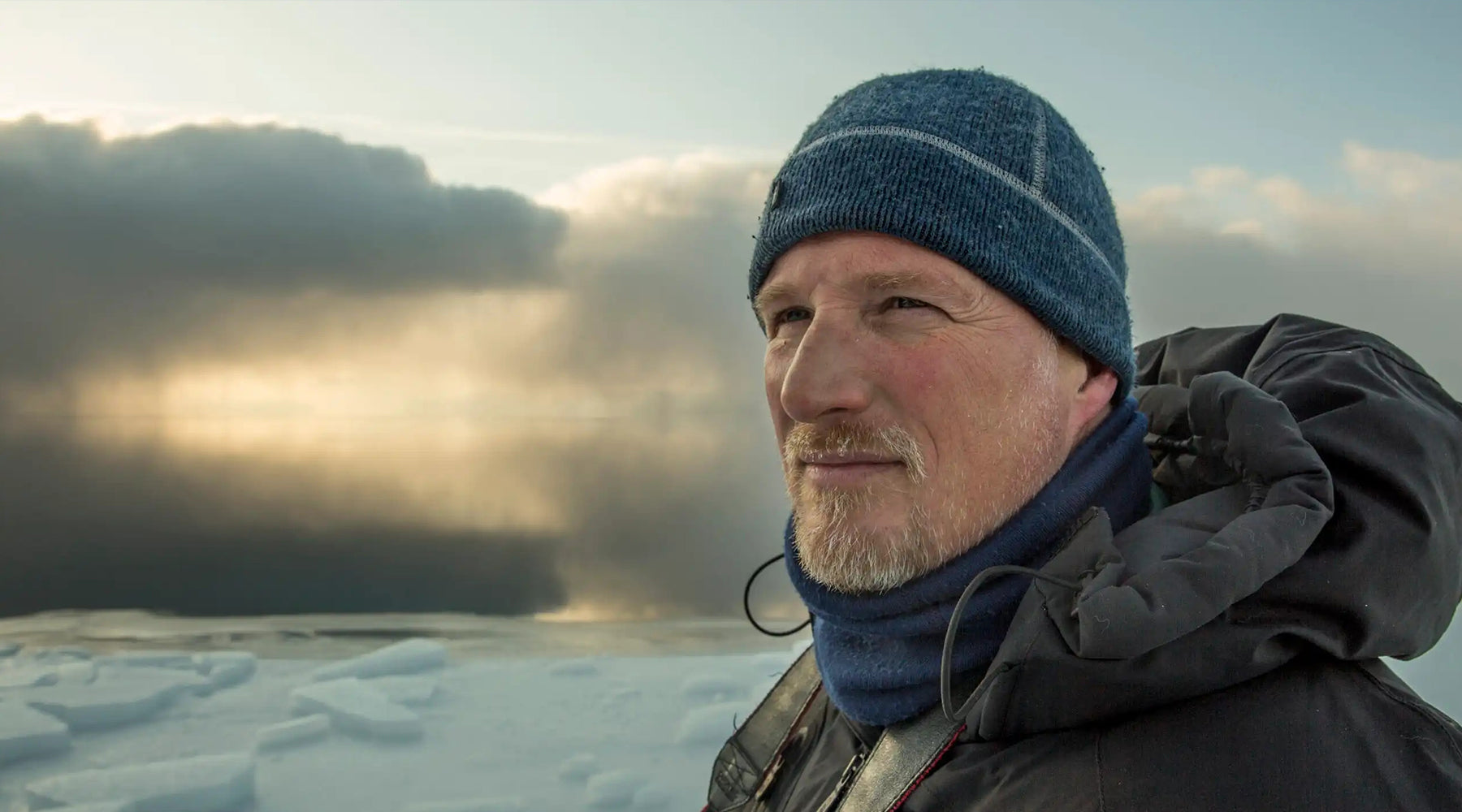
SHACKLETON MEDAL 2025: MEET THE SHORTLIST - FELICITY ASTON
Antarctic Explorer and Climate Scientist.
The first woman to cross Antarctica solo, Felicity Aston completed the final leg of the “B.I.G. (Before It’s Gone) Arctic Research Expedition” last year—collecting vital environmental samples in the Canadian Arctic. She continues to champion polar science and diversity in exploration through speaking, writing, and public engagement.
You’ve made history repeatedly at the poles, not least by being the first woman to ski alone across Antarctica in 2012. Can you talk about the kind of challenges you’ve faced as a woman?
I would love to say that things have improved. But I keep encountering attitudes – many of them unconscious – that mean that even beyond the poles there are many women who still don't get to make their own decisions in life. So many are overwhelmed by an expectation laid out for them by society about what they can and cannot do. Of course there have been encouraging changes. In polar science, the dominance of scientists doing great stuff who just happened to be women is really noticeable. Particularly in that crossover between marine science and cryosphere science. Yet you get to those really critical, high-level meetings, and it’s back to seeing white, middle-aged men sitting around the table. In my opinion it’s becoming an increasingly untenable situation.
As someone who has broken through the glass ceiling, what do you think it is about you that has made you determined not to take no for an answer?
Being brutally honest, it might be a sort of naivety. I remember being very late in realising that the obstacles I was facing were because of people's attitude to my gender. I was educated in a in a state school but it was an all girls’ school. It didn't even occur to me that I should be worrying about what was appropriate because I was a woman. Now, the more I work with different people and the more experience I get, the more and more ridiculous it seems that some people exclude a whole portion of the global population just because of their gender, or their sexual orientation, or their faith.
What has been your greatest achievement in the last year?
This year we completed the B.I.G (Before It’s Gone) Arctic Research Expedition [in which Aston led a novice all-female team on annual ski expeditions that began in 2021 to collect crucial ice and atmospheric data from sea ice]. One of the biggest achievements from that was getting Arctic science onto national primetime TV in the UK. We had a 10-minute segment on The One Show [which has an average audience of 3 million viewers]. We worked really hard on it – we wanted to make sure that people would care even if they were just watching TV while they were eating their meat and veg. We started with the human drama of going into an extreme environment – scooping up snow and ice, encountering blizzards. Then suddenly we were in a lab in Southampton, dressed up in white suits and investigating microplastics. We wanted it to be like those fantastic science lessons that you always remember – where you scoop something up from outside and go and look at what’s in it. So the pay off at the end is that we’d taken what looked like very pure snow from near the North Pole and put it under a microscope only to discover quite how much plastic there was in it.
We got a lot of great feedback from that, and it’s sparked lots of opportunities to talk to different audiences. So we’ve found ourselves doing a lot of outreach, not least in Australia – which is a nation that’s very engaged and aware of the impact of environment, because they are seeing the consequences of what happens if you don’t look after it.
What’s the greatest challenge you’ve found yourself in on an expedition and how have you got through it?
For the BIG expedition, four years in a row we tried to get to the geographic North Pole. But that hasn’t happened for anyone since 2018. [Felicity led the Women’s Euro-Arabian North Pole Expedition 2018 which successfully reached the North Pole by ski on April 21, 2018.] Børg Ouseland and Mike Horn got to the North Pole but they went in winter time [between 2019/2020] – and I don’t know if there’s anyone alive on the planet who could have done that except for those two. We decided to divert to other locations in the Arctic. But with each location we had huge logistical difficulties just because of the variability and unpredictability of the climate. For example, we went to Svalbard equipped for temperatures of around minus 20. But most of the time the temperatures were above zero and it rained every single day. The equipment that we took and the plans that we had were not based on facing those sorts of temperatures – getting very wet and freezing, getting very wet and freezing. After that we went to Iceland. One year we couldn't access the glacier, because there was too much snow. So the next year, we went back ready, you know, with a different attack plan, and we found grass. It made me think, if I'm having this difficulty now in making a polar expedition work, what will it be like for someone the age of my son, who currently is 7? Already we need a complete rethink of what our climate reality is.
What do you think of Shackleton as a historical figure?
Shackleton is often presented as this epitome amazing leadership. And yes, he was, but that didn't come out of a bottle. He had to learn those skills and he must have been full of private self doubt. I think that’s evident when you read his diaries. He also made huge personal sacrifices. So I have a huge amount of respect for Shackleton and the early explorers of polar regions. But I’ll be honest, it was the environment itself that inspired me – explorers like Shackleton and Scott were male explorers who made their names at the opposite end of the 20th century to me. I don't think they could have even a conceived of a woman wanting to do what they were doing.
Which historical figures have inspired you?
I really love telling stories of women explorers through the ages – particularly polar women explorers. I collect stories of figures ranging from female generals from ancient China to African queens, who were some of the most bloodthirsty political leaders in the whole of human history. In polar history Captain Cook crossed the Antarctic Circle for the first time in 1773. A French ship crossed the Antarctic Circle a year afterwards, in 1774, and there was a woman on that – though she was there as a courtesan. The only reason we know of her existence is because of the disgruntled letters of the captain's wife who was complaining that he took that bloody woman along with him! But it proves that women have been there from the beginning. Now their stories need to be told.
By Rachel Halliburton


